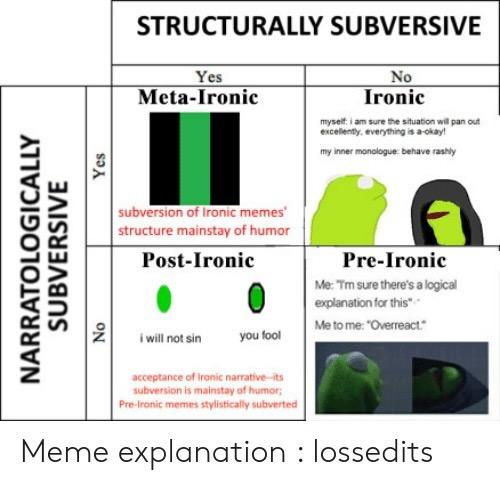In our podcast we discuss the difference between humor in neurotypical and neurodivergent people. Along with that we answer the question of what is even considered funny (in our generation).
music source: https://youtu.be/5MzZ7otQCfk


Podcasts for students by students
In our podcast we discuss the difference between humor in neurotypical and neurodivergent people. Along with that we answer the question of what is even considered funny (in our generation).
music source: https://youtu.be/5MzZ7otQCfk
We all have been there: As embarassing it can feel to send an unintended text message to the wrong person at first, it can turn out to be a great and funny story to tell as well. Alexandra and Mia are going to talk about the German Comedy Podcast “Bratwurst und Baklava” story about texing fails and draw a parallel to their experiences and what makes it so funny.
Humour itself seems to be universal right? But how does it come that people around the world seem to have different kinds of humour and how does this affect our perception of humour? In this episode we – Franziska, Antonia, Evelina, Helin and Rebekka – will be talking about different kinds of humour, our own experiences with humour in different cultures and in what way our perceptions of humour as westerners differentiate from those of easterners.
Image: Photo by Bernard Hermant on Unsplash
other resources:
https://www.frontiersin.org/articles/10.3389/fpsyg.2019.00123/full
https://youtu.be/w-abKKg0sw8
http://www.psychologytoday.com/us/basics/humor
In this podcast, we discuss humor – memes, popular sitcoms, and their popularity. What makes us laugh, and how humor influences our lives and our relationships. We discuss our favorite comedic shows, why they make us laugh and how they gained their popularity. Then we will finally give you our recommendations.
Image: Laugh neon signage photo (Tim Mossholder. Unsplash) (https://unsplash.com/photos/imlD5dbcLM4)
Intro/ Outro: Comedy Theme (hagfilms. freesound)(https://freesound.org/people/hagfilms/sounds/328178/)
Irony is a familiar method used to be funny and tell a joke. What many people, especially of the older generation, don’t know is how Gen Z has completely mastered the way of ironic speech, going beyond the standard irony! Many layers of irony are required to decode what a joke is meant to say and usually the humour is merely limited to the people who are accustomed to its usage, making it special for only that demographic. Older generations might not find it funny, but we have made it our task to at least explain how Gen Z irony works!
For more details: https://www.youtube.com/watch?v=nsuSveDAlpI
We are very delighted that you have shown interest in our enterprise. Data protection is of a particularly high priority for the management of us. The use of the Internet pages of us is possible without any indication of personal data; however, if a data subject wants to use special enterprise services via our website, processing of personal data could become necessary. If the processing of personal data is necessary and there is no statutory basis for such processing, we generally obtain consent from the data subject.
The processing of personal data, such as the name, address, e-mail address, or telephone number of a data subject shall always be inline with the General Data Protection Regulation (GDPR), and in accordance with the country-specific data protection regulations applicable to us. By means of this data protection declaration, our enterprise wouldlike to inform the general public of the nature, scope, and purpose of the personal data we collect, use and process. Furthermore, data subjects are informed, by means of this data protection declaration, of the rights to which they are entitled.
As the controller, we has implemented numerous technical and organizational measures to ensure the most complete protection of personal data processed through this website. However, Internet-based data transmissions may in principle have security gaps, so absolute protection may not be guaranteed. For this reason, every data subject is free to transfer personal data to us via alternative means, e.g. by telephone.
In this data protection declaration, we use, inter alia, the following terms:
Heinrich-Heine-Universität Düsseldorf
Dr. Ursula Hilgers
Universitätsstr 1
40225 Düsseldorf
Germany
+49 211 81-13060
E-Mail: hilgers@hhu.de
Many Internet sites and servers use cookies. Many cookies contain a so-called cookie ID. A cookie ID is a unique identifier of the cookie. It consists of a character string through which Internet pages and servers can be assigned to the specific Internet browser in which the cookie was stored. This allows visited Internet sites and servers to differentiate the individual browser of the dats subject from other Internet browsers that contain other cookies. A specific Internet browser can be recognized and identified using the unique cookie ID.
Through the use of cookies, we can provide the users of this website with more user-friendly services that would not be possible without the cookie setting.
By means of a cookie, the information and offers on our website can be optimized with the user in mind. Cookies allow us, as previously mentioned, to recognize our website users. The purpose of this recognition is to make it easier for users to utilize our website. The website user that uses cookies, e.g. does not have to enter access data each time the website is accessed, because this is taken over by the website, and the cookie is thus stored on the user's computer system. Another example is the cookie of a shopping cart in an online shop. The online store remembers the articles that a customer has placed in the virtual shopping cart via a cookie.
The data subject may, at any time, prevent the setting of cookies through our website by means of a corresponding setting of the Internet browser used, and may thus permanently deny the setting of cookies. Furthermore, already set cookies may be deleted at any time via an Internet browser or other software programs. This is possible in all popular Internet browsers. If the data subject deactivates the setting of cookies in the Internet browser used, not all functions of our website may be entirely usable.
When using these general data and information, we does not draw any conclusions about the data subject. Rather, this information is needed to (1) deliver the content of our website correctly, (2) optimize the content of our website as well as its advertisement, (3) ensure the long-term viability of our information technology systems and website technology, and (4) provide law enforcement authorities with the information necessary for criminal prosecution in case of a cyber-attack. Therefore, we analyzes anonymously collected data and information statistically, with the aim of increasing the data protection and data security of our enterprise, and to ensure an optimal level of protection for the personal data we process. The anonymous data of the server log files are stored separately from all personal data provided by a data subject.
By registering on the website of the controller, the IP address—assigned by the Internet service provider (ISP) and used by the data subject—date, and time of the registration are also stored. The storage of this data takes place against the background that this is the only way to prevent the misuse of our services, and, if necessary, to make it possible to investigate committed offenses. Insofar, the storage of this data is necessary to secure the controller. This data is not passed on to third parties unless there is a statutory obligation to pass on the data, or if the transfer serves the aim of criminal prosecution.
The registration of the data subject, with the voluntary indication of personal data, is intended to enable the controller to offer the data subject contents or services that may only be offered to registered users due to the nature of the matter in question. Registered persons are free to change the personal data specified during the registration at any time, or to have them completely deleted from the data stock of the controller.
The data controller shall, at any time, provide information upon request to each data subject as to what personal data are stored about the data subject. In addition, the data controller shall correct or erase personal data at the request or indication of the data subject, insofar as there are no statutory storage obligations. The entirety of the controller’s employees are available to the data subject in this respect as contact persons.
If a data subject leaves a comment on the blog published on this website, the comments made by the data subject are also stored and published, as well as information on the date of the commentary and on the user's (pseudonym) chosen by the data subject. In addition, the IP address assigned by the Internet service provider (ISP) to the data subject is also logged. This storage of the IP address takes place for security reasons, and in case the data subject violates the rights of third parties, or posts illegal content through a given comment. The storage of these personal data is, therefore, in the own interest of the data controller, so that he can exculpate in the event of an infringement. This collected personal data will not be passed to third parties, unless such a transfer is required by law or serves the aim of the defense of the data controller.
If the storage purpose is not applicable, or if a storage period prescribed by the European legislator or another competent legislator expires, the personal data are routinely blocked or erased in accordance with legal requirements.
If a data subject wishes to avail himself of this right of access, he or she may, at any time, contact any employee of the controller.
If a data subject wishes to exercise this right to rectification, he or she may, at any time, contact any employee of the controller.
Where the controller has made personal data public and is obliged pursuant to Article 17(1) to erase the personal data, the controller, taking account of available technology and the cost of implementation, shall take reasonable steps, including technical measures, to inform other controllers processing the personal data that the data subject has requested erasure by such controllers of anylinks to, or copy or replication of, those personal data, as far as processing is not required. An employees of us will arrange the necessary measures in individual cases.
Furthermore, in exercising his or her right to data portability pursuant to Article 20(1) of the GDPR, the data subject shall have the right to have personal data transmitted directly from one controller to another, where technically feasible and when doing so does not adversely affect the rights and freedoms of others.
In order to assert the right to data portability, the data subject may at any time contact any employee of us.
We shall no longer process the personal data in the event of the objection, unless we can demonstrate compelling legitimate grounds for the processing which override the interests, rights and freedoms of the data subject, or for the establishment, exercise or defence of legal claims.
If we processes personal data for direct marketing purposes, the data subject shall have the right to object at any time to processing of personal data concerning him or her for such marketing. This applies to profiling to the extent that it is related to such direct marketing. If the data subject objects to us to the processing for direct marketing purposes, we will no longer process the personal data for these purposes.
In addition, the data subject has the right, on grounds relating to his or her particular situation, to object to processing of personal data concerning him or her by us for scientific or historical research purposes, or for statistical purposes pursuant to Article 89(1) of the GDPR, unless the processing is necessary for the performance of a task carried out for reasons of public interest.
In order to exercise the right to object, the data subject may contact any employee of us. In addition, the data subject is free in the context of the use of information society services, and notwithstanding Directive 2002/58/EC, to use his or her right to object by automated means using technical specifications.
If the decision (1) is necessary for entering into, or the performance of, a contract between the data subject and a data controller, or (2) it is based on the data subject's explicit consent, we shall implement suitable measures to safeguard the data subject's rights and freedoms and legitimate interests, at least the right to obtain human intervention on the part of the controller, to express his or her point of view and contest the decision.
If the data subject wishes to exercise the rights concerning automated individual decision-making, he or she may, at any time, contact any employee of us.
If the data subject wishes to exercise the right to withdraw the consent, he or she may, at any time, contact any employee of us.
Sometimes it may be necessary to conclude a contract that the data subject provides us with personal data, which must subsequently be processed by us. The data subject is, for example, obliged to provide us with personal data when our company signs a contract with him or her. The non-provision of the personal data would have the consequence that the contract with the data subject could not be concluded.
Before personal data is provided by the data subject, the data subject must contact any employee. The employee clarifies to the data subject whether the provision of the personal data is required by law or contract or is necessary for the conclusion of the contract, whether there is an obligation to provide the personal data and the consequences of non-provision of the personal data.
| Name | Purpose | Validity |
|---|---|---|
| wordpress_test_cookie | This cookie determines whether the use of cookies has been disabled in the browser. Duration of storage: Until the end of the browser session (will be deleted when closing your internet browser). | Session |
| PHPSESSID | This cookie stores your current session with respect to PHP applications, ensuring that all features of this website based on the PHP programming language are fully displayed. Duration of storage: Until the end of the browser session (will be deleted when closing your internet browser). | Session |
| wordpress_akm_mobile | These cookies are only used for the administration area of WordPress. | 1 Year |
| wordpress_logged_in_akm_mobile | These cookies are only used for the administration area of WordPress and do not apply to other site visitors. | Session |
| wp-settings-akm_mobile | These cookies are only used for the administration area of WordPress and do not apply to other site visitors. | Session |
| wp-settings-time-akm_mobile | These cookies are only used for the administration area of WordPress and do not apply to other site visitors. | Session |
| ab | Is used for A / B testing of new features. | Session |
| akm_mobile | saves if the visitor wants to see the mobile version of a website. | 1 Day |
Cookies from DSGVO AIO for WordPress
| Name | Purpose | Validity |
|---|---|---|
| dsgvoaio | This LocalStorage key / value stores which services the user has agreed to or not. | variable |
| _uniqueuid | This LocalStorage key / value stores a generated ID so that the user's opt-in / opt-out actions can be documented. The ID is stored anonymously. | variable |
| dsgvoaio_create | This LocalStorage key / value stores the time when _uniqueuid was generated. | variable |
| dsgvoaio_vgwort_disable | This LocalStorage key / value stores whether the service VG word standard is allowed or not (setting of the page operator). | variable |
| dsgvoaio_ga_disable | This LocalStorage key / value stores whether the service Google Analytics Standard is allowed or not (Hiring the site operator). | variable |












